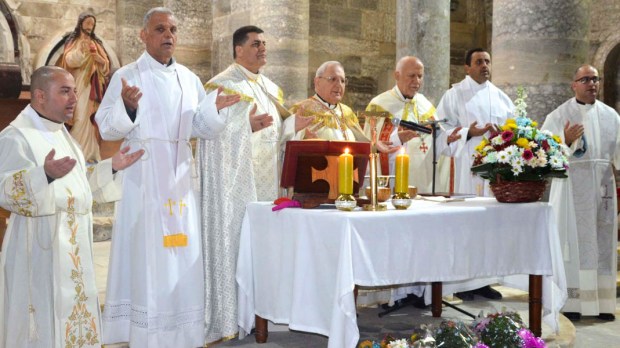Pope Francis received in audience the bishops of the Chaldean Catholic Church on February 5.
François Yakan, Patriarchal Administrator of the Chaldeans in Turkey, spoke with I.Media about the meetings, noting how Pope Francis reiterated his concern for Eastern Christians and the Christians of the Middle East.
In fact, the meeting began late because the pope was with Turkish President Recep Tayyip Erdogan, in discussions that focused on the status of Jerusalem.
The Holy Father then received the group of bishops led by Patriarch Louis Sako. Their talks lasted longer than expected, Bishop Yakan said. The pontiff took the time to speak with each bishop about the situation of his diocese.
“The pope does not forget us,” he assured. According to Bishop Yakan, the Successor of Peter was particularly attentive to the situation of the Chaldean diaspora, including “safeguarding its identity,” culture and liturgy.
“I am ready to go to Iraq,” the pope even said, adding however that “it was not the moment.” According to Patriarch Sako, the necessary security conditions are not met. It is the same with the political situation, tied up in a power struggle between the Kurdish autonomists and the central government of Baghdad, the Iraqi capital.
But the outlines of this hypothetical pontifical journey seem well defined. The Iraqi patriarch spoke of a stage in Ur, Mesopotamia—Abraham’s hometown in the Bible—as well as Baghdad and Erbil to visit the refugees.
There is indeed fear of the Chaldean Church slowly disappearing, despite it being one of the first Eastern Churches, founded in Babylon in today’s Iraq and traditionally going back to the Apostle Thomas.
This patriarchal Church is one of 11 Eastern Churches in Iraq. There are about one million faithful worldwide, with less than half still in Iraq, and 100,000 in Europe. The last great migration was sparked by the arrival of Islamic State in Mosul in 2014, when many Christians fled the Nineveh Plain and took refuge in the autonomous region of Kurdistan.

